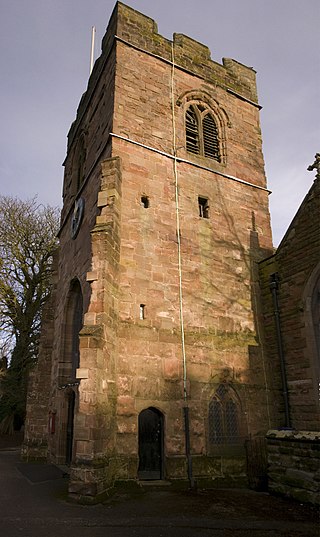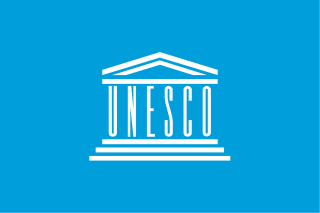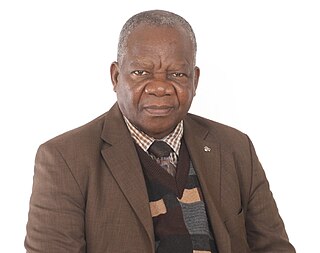
The University for Peace (UPEACE) is an international graduate-only university and intergovernmental organization. The university was established as a treaty organisation by the United Nations General Assembly in 1980.

Harborne is an area of south-west Birmingham, England. It is one of the most affluent areas of the Midlands, three miles southwest from Birmingham city centre. It is a Birmingham City Council ward in the formal district and in the parliamentary constituency of Birmingham Edgbaston.

Elihu Burritt was an American diplomat, philanthropist, and social activist. He was also a prolific lecturer, journalist and writer who traveled widely in the United States and Europe.

Open educational resources (OER) are teaching, learning, and research materials intentionally created and licensed to be free for the end user to own, share, and in most cases, modify. The term "OER" describes publicly accessible materials and resources for any user to use, re-mix, improve, and redistribute under some licenses. These are designed to reduce accessibility barriers by implementing best practices in teaching and to be adapted for local unique contexts.

Edward Capern, was an English poet, best known for The Devonshire Melodist and Wayside Warbles. He built up a strong reputation that persisted particularly in his native Devon.
UNESCO-CEPES was established in 1972 at Bucharest, Romania, as a de-centralized office for the European Centre for Higher Education. The centre was closed in 2011 due to lack of funding. The centre promoted international cooperation in the sphere of higher education among UNESCO's Member States in Central, Eastern and South-East Europe and also served Canada, the United States and Israel. Higher Education in Europe, a scholarly publication focusing on major problems and trends in higher education, was the official journal of UNESCO-CEPES. The CEPES headquarters was in the Kretzulescu Palace in Bucharest.
Human rights education (HRE) is the learning process that seeks to build up knowledge, values, and proficiency in the rights that each person is entitled to. This education teaches students to examine their own experiences from a point of view that enables them to integrate these concepts into their values, decision-making, and daily situations. According to Amnesty International, HRE is a way to empower people, training them so their skills and behaviors will promote dignity and equality within their communities, societies, and throughout the world.

The Australian Council for Educational Research (ACER), established in 1930, is an independent educational research organisation based in Camberwell, Victoria (Melbourne) and with offices in Adelaide, Brisbane, Dubai, Jakarta, Kuala Lumpur, London, New Delhi, Perth and Sydney. ACER develops and manages a range of testing and assessment services and conducts research and analysis in the education sector.

Saint Peter's is the ancient parish church of Harborne, Birmingham, England.

Sir Nasser David Khalili KCSS PhD is a British-Iranian scholar, collector, and philanthropist based in London. Born in Iran and educated at Queens College, City University of New York and the School of Oriental and African Studies in London, he is a naturalised British citizen.

Primary education or elementary education is typically the first stage of formal education, coming after preschool/kindergarten and before secondary school. Primary education takes place in primary schools, elementary schools, or first schools and middle schools, depending on the location.
Selly Oak Colleges was a federation of educational facilities which in the 1970s and 1980s was at the forefront of debates about ecumenism - the coming together of Christian churches and the creation of new united churches such as the Church of South India; the relationships between Christianity and other religions, especially Islam and Judaism; child-centred teacher training; and the theology of Christian mission. It was located on a substantial campus in Selly Oak, a suburb in the south-west of Birmingham, England, about a mile from the University of Birmingham. In 2001 the largest college, Westhill College, whose main work was the training of teachers, passed into the hands of the University of Birmingham, and most of the remaining colleges closed, leaving Woodbrooke College, a study and conference centre for the Society of Friends, and Fircroft College, a small adult education college with residential provision, which continue today.

The United Nations Educational, Scientific and Cultural Organization (UNESCO) is a specialized agency of the United Nations (UN) aimed at promoting world peace and security through international cooperation in education, arts, sciences and culture. It has 193 member states and 12 associate members, as well as partners in the non-governmental, intergovernmental and private sector. Headquartered in Paris, France, UNESCO has 53 regional field offices and 199 national commissions that facilitate its global mandate.

Malcolm Sathiyanathan Adiseshiah, was an Indian development economist and educator. In 1976 he was awarded the Padma Bhushan, India's third-highest civilian award. In 1998, UNESCO created the Malcolm Adiseshiah International Literacy Prize in recognition of his contribution to education and literacy. He was nominated to the Rajya Sabha, the upper house of the Parliament of India, in 1978.
Mohamed bin Issa Al Jaber (Arabic: محمد بن عيسى الجابر, romanized: Muḥammad bin ʿĪssā al-Ǧābir, born in 1959 is an Arab businessman.

The Khalili Foundation is a UK-based charity promoting interfaith and intercultural understanding through art, culture and education. Its founder and chairman is the London-based philanthropist, art collector and scholar Sir David Khalili. A Persian Jew who grew up in Iran, he is notable for having the world's largest private collection of Islamic art. Established in 1995, the foundation has created interfaith and intercultural links through "cultural, academic, sporting and educational programmes".

Keith M Lewin is a British Professor of International education and Development at the University of Sussex and Director of the Consortium for Research on Educational Access, Transitions and Equity (CREATE). He is known for his work in educational planning, economics and finance of education, teacher education, assessment, science and technology education policy in developing countries, educational aid and program evaluation. He has been adviser to various governmental, multilateral and non-profit organisations on education planning and policy, including the World Bank, DFID, UNESCO International Institute for Educational Planning, UNICEF, UNDP, AusAID and others. His country experience includes projects in Ghana, Rwanda, Uganda, Kenya, Tanzania, Malawi, South Africa, Zimbabwe, Mauritius, Trinidad and Tobago, Barbados, India, Sri Lanka, Bangladesh, Malaysia, and China.

Michael Abiola Omolewa is a Nigerian diplomat, scholar, education historian, and civil servant. From September 2003 to October 2005, he served as the 32nd president of the General Conference of the United Nations Educational, Scientific and Cultural Organization (UNESCO). While president, Omolewa led UNESCO to adopt the International Declaration on Human Genetic Data and the Convention for the Safeguarding of Intangible Cultural Heritage. From January 2000 to August 2009, Omolewa served as permanent delegate and ambassador of Nigeria to UNESCO. At University of Lagos, on Wednesday 6 February 2019, Omolewa delivered the 5th Enoch Adeboye Annual Birthday Public Lecture; titled: Peace: The Global Quest.
Global citizenship education (GCED) is a form of civic learning that involves students' active participation in projects that address global issues of a social, political, economic, or environmental nature. The two main elements of GCE are 'global consciousness'; the moral or ethical aspect of global issues, and 'global competencies', or skills meant to enable learners to participate in changing and developing the world. The promotion of GCE was a response by governments and NGOs to the emergence of supranational institution, regional economic blocs, and the development of information and communications technologies. These have all resulted in the emergence of a more globally oriented and collaborative approach to education. GCE addresses themes such as peace and human rights, intercultural understanding, citizenship education, respect for diversity and tolerance, and inclusiveness.
Daniel A. Wagner is the UNESCO Chair in Learning and Literacy, and professor of education at the University of Pennsylvania, where his research specializes in learning, literacy, child development, educational technologies, and international educational development. He is founding director (1983) of Penn’s Literacy Research Center and the federally funded National Center on Adult Literacy (1990). In recent years, the center has become the International Literacy Institute (ILI), co-established by UNESCO and the University of Pennsylvania. Wagner is also the director of Penn’s International Educational Development Program (IEDP) and is a Fellow of the American Psychological Association, the American Anthropological Association, and the American Educational Research Association. He is the author numerous books and articles on learning, literacy, cross-cultural research and methodologies, and is a frequent speaker at major national and international conferences across the world. He has worked as an advisor to, among others, the World Bank, UNESCO, UNICEF, USAID, and DFID. In 2012, Wagner was appointed by Hillary Clinton as a Member of the U.S. National Commission for UNESCO. In the same year, he was named UNESCO Chair in Learning and Literacy. In 2012-2014, he served as Chair of the Brookings Global Research Task Force on Learning. In 2014, he was a recipient of the UNESCO Confucius International Literacy Prize. He has maintained multi-year educational projects in India, South Africa, and Morocco.


















